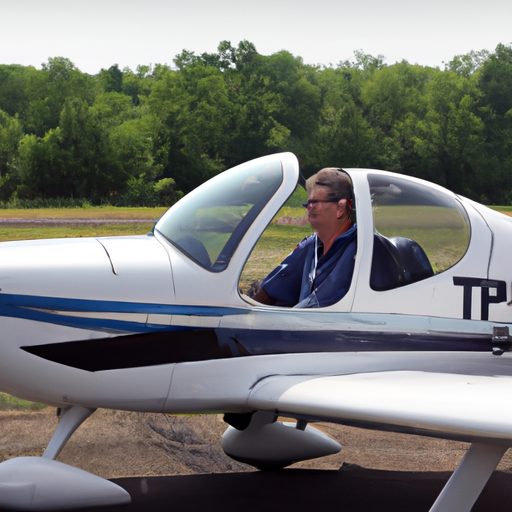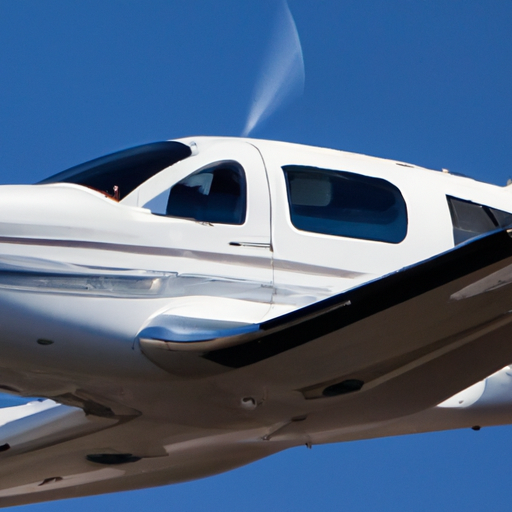
Are you interested in becoming a pilot? Have you been researching flight schools and feeling overwhelmed by all the options? Well, fear not! In this article, we will discuss how to choose the best Part 61 flight school for your aviation dreams. By the end of this article, you’ll have a better understanding of what to look for in a flight school and be well-equipped to make an informed decision.
Part 61 flight schools are a popular choice for aspiring pilots who want to pursue flying as a hobby or for personal use. These flight schools operate under Federal Aviation Administration (FAA) regulations that allow pilots to earn their licenses and ratings at their own pace. One of the benefits of Part 61 flight schools is the flexibility they offer when it comes to training schedules. You can choose to take lessons as frequently or infrequently as you’d like, making it easier to fit flying into your busy life. In addition, Part 61 flight schools often have a more relaxed and personalized approach to training, allowing for a more comfortable and enjoyable learning experience. In the following sections, we will explore the key factors to consider when choosing the best Part 61 flight school for you.

Overview of Part 61 Flight Schools
If you’re aspiring to become a pilot, you will need to undergo training from a recognized flight school. In the United States, there are two main types of flight schools: Part 61 and Part 141. In this article, we will focus on Part 61 flight schools and delve into the factors you should consider when making your choice.
Definition and Purpose
Part 61 flight schools are training facilities that operate under Federal Aviation Administration (FAA) regulations Part 61. These regulations outline the minimum requirements for pilot certification, such as the number of flight hours, knowledge tests, and practical exams. Part 61 schools offer flexibility in terms of training schedules, allowing students to learn at their own pace.
The purpose of Part 61 flight schools is to provide individuals with the necessary knowledge and flight experience to obtain pilot licenses or ratings. Whether you aspire to become a private pilot, commercial pilot, or certified flight instructor, a Part 61 flight school can help you achieve your goals.
Regulations and Requirements
To operate as a Part 61 flight school, certain regulations and requirements must be met. These include having certified flight instructors, maintaining a training syllabus, and conducting regular flight and ground training sessions.
One of the key advantages of Part 61 flight schools is that they allow for greater flexibility in terms of training hours. The FAA requires a minimum of 40 flight hours for a private pilot license and 250 flight hours for a commercial pilot license under Part 61. However, it’s important to note that these are minimum requirements, and many students exceed these hours to gain more experience and proficiency.
Factors to Consider when Choosing a Part 61 Flight School
When selecting a Part 61 flight school, it’s essential to consider several factors to ensure you receive quality training that meets your needs. Let’s explore some of these factors in detail.
Location and Accessibility
Choosing a flight school that is conveniently located is crucial for reducing commuting time and expenses. Consider whether the school is near your residence or a place where you can easily commute. Additionally, proximity to an airport with suitable training facilities and airspace is essential for practical flight training.
Reputation and Accreditation
Research the reputation and accreditation of the flight school you are considering. Look for schools with a good track record of producing skilled and competent pilots. Accreditation from organizations such as the Accrediting Council for Independent Colleges and Schools (ACICS) or regional accrediting associations adds credibility to the school’s training program.
Course Offerings and Specializations
Different flight schools offer various courses and specializations. Identify your aviation goals and choose a school that aligns with your interests. Some schools may specialize in specific areas such as commercial flying, instrument training, or aerobatics. Ensure the school offers the courses and specializations that will help you achieve your desired pilot qualifications.
Comparing Training Facilities and Resources
To receive top-notch training, it’s essential to assess the training facilities and resources available at the flight school.
Aircraft Fleet
A flight school’s aircraft fleet is a crucial factor to consider. Find out about the type and condition of the aircraft they use for training. Ideally, the school should have a diverse fleet that includes single-engine and multi-engine aircraft, as well as advanced avionics and navigation systems. A well-maintained fleet ensures safety and provides a more comprehensive training experience.
Simulators and Training Devices
Simulators and training devices play a vital role in pilot training. They allow students to practice various flight scenarios in a controlled environment. The availability of simulators and other training devices can enhance your learning experience, as they provide a cost-effective way to train for specific maneuvers and emergency procedures.
Classroom and Ground Training Facilities
Classroom and ground training facilities are where you will receive theoretical and practical knowledge before taking to the skies. Ensure that the flight school has well-equipped classrooms with multimedia resources, aviation libraries, and a conducive learning environment. The availability of flight planning and briefing rooms is also important for pre-flight preparations and debriefing sessions.

Faculty Qualifications and Experience
The expertise and qualifications of the flight school’s instructors play a significant role in the quality of training you will receive.
Instructors’ Certifications
Verify the certifications and qualifications of the flight instructors. Instructors should hold valid FAA certificates and have a thorough understanding of the aviation regulations and procedures. Additionally, instructors who hold advanced ratings and certifications, such as Instrument Rating Instructor (CFII), can provide specialized training and guidance.
Aviation Experience and Background
Instructors’ aviation experience and background are equally important. Instructors with a diverse aviation background, including airline or military experience, bring a wealth of knowledge and practical insights to the training. Their real-world experiences can help you gain a deeper understanding of the aviation industry and prepare you for future career opportunities.
Student-to-Instructor Ratio and Individualized Instruction
The student-to-instructor ratio significantly impacts the quality and effectiveness of flight training.
Benefits of a Lower Student-to-Instructor Ratio
Choosing a flight school with a lower student-to-instructor ratio ensures more personalized attention and supervision. With fewer students per instructor, instructors can focus on each student’s specific needs and provide tailored instruction. This allows for a more efficient learning process and increases your chances of mastering the required skills.
Importance of Individualized Instruction
Individualized instruction is crucial for successful pilot training. A flight school that emphasizes personalized instruction will give you the opportunity to address your weaknesses and work on areas that require improvement. This tailored approach can boost your confidence and competence as a pilot.
Costs and Financing Options
The cost of pilot training is a significant consideration when choosing a flight school.
Tuition and Fees
Compare the tuition and fees of different flight schools to ensure the prices are reasonable and within your budget. It’s important to note that higher costs do not always guarantee better quality training. Consider the value you will receive for the tuition and fees paid.
Additional Expenses
In addition to tuition and fees, there are other expenses to consider, such as textbooks, pilot supplies, medical examinations, and flight test fees. Understand the additional costs involved to accurately estimate the total expenses required for your pilot training.
Scholarships and Financial Aid
Research scholarships and financial aid options that may be available to you. Some flight schools offer scholarships or have partnerships with external organizations that provide financial assistance to aspiring pilots. Taking advantage of these opportunities can help make pilot training more affordable.
Safety Record and Accident History
Safety should always be a top priority when selecting a flight school.
Importance of Safety
Review the flight school’s safety policies and procedures. Safety should be ingrained into every aspect of the training. Find out if the school has a Safety Management System (SMS) in place and if they conduct regular safety audits and inspections. A robust safety culture indicates an institution that values the well-being of its students and instructors.
Reviewing Accident History
While accidents can occur in any industry, reviewing the flight school’s accident history can give you some insights into their safety practices. Look for any patterns or recurring safety issues that may raise concerns. It’s important to note that a single accident should not automatically disqualify a flight school, as accidents can be the result of various factors.
Student Support Services and Opportunities
Flight schools that offer comprehensive student support services and opportunities can enhance your training experience.
Academic Support
Consider the availability of academic support services such as mentors, tutoring, and study resources. Flight training can be challenging, and having access to academic assistance can improve your understanding and performance in the program.
Career Services and Job Placement
If your goal is to pursue a career in aviation, inquire about the career services and job placement assistance offered by the flight school. Some schools have partnerships with airlines or other aviation companies, which can provide valuable networking opportunities and potential job prospects.
Internship and Networking Opportunities
Flight schools that offer internship programs or networking events can provide you with exposure to the aviation industry and foster valuable connections. Internships allow you to gain practical experience and potentially secure job offers upon completion of your training.
Alumni Success and Reviews
The success of a flight school’s alumni can be a good indication of the quality of its training program.
Reviewing Alumni Success Stories
Look for success stories and achievements of the flight school’s alumni. These can be testimonials on the school’s website or news articles showcasing the accomplishments of former students. Alumni who have gone on to successful careers in aviation indicate that the school provided them with quality training and prepared them well for the industry.
Reading and Analyzing Student Reviews
Read reviews and feedback from current and former students about their experience at the flight school. Websites such as PilotWorkshops, Flight School Reviews, and the flight school’s social media pages often feature reviews and ratings. Pay attention to both positive and negative reviews to gain a comprehensive understanding of the school’s strengths and weaknesses.
Conclusion
Choosing the best Part 61 flight school requires careful consideration of several factors. Assess the location, reputation, course offerings, facilities, faculty qualifications, student-to-instructor ratio, costs, safety record, student support services, and reviews of potential flight schools. Remember, selecting the right flight school is a crucial step towards fulfilling your aviation dreams. By conducting thorough research and taking into account the outlined factors, you can make an informed decision and embark on an exciting aviation journey.



Leave a Reply